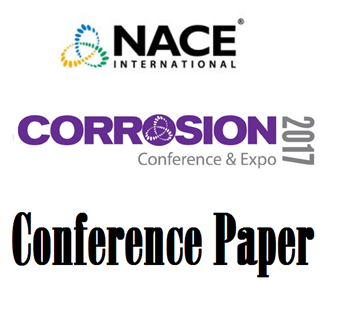Search
10143 Evaluating Corrosion and Inhibition Under Sludge Deposits in Large Diameter Crude Oil Pipelines
Also Purchased
Internal Corrosivity Assessment and Ranking of Crude Pipeline
Product Number:
51317--9225-SG
ISBN:
9225 2017 CP
Publication Date:
2017
$20.00
51313-02663-Evaluation of MIC Contribution to Underdeposit Sludge Corrosiveness in a Heavy Crude Pipeline
Product Number:
51313-02663-SG
ISBN:
02663 2013 CP
Publication Date:
2013
$20.00
51314-4254-Methodology for Accelerated Microbiologically Influenced Corrosion in Under Deposits from Crude Oil
Product Number:
51314-4254-SG
ISBN:
4254 2014 CP
Publication Date:
2014
$0.00




